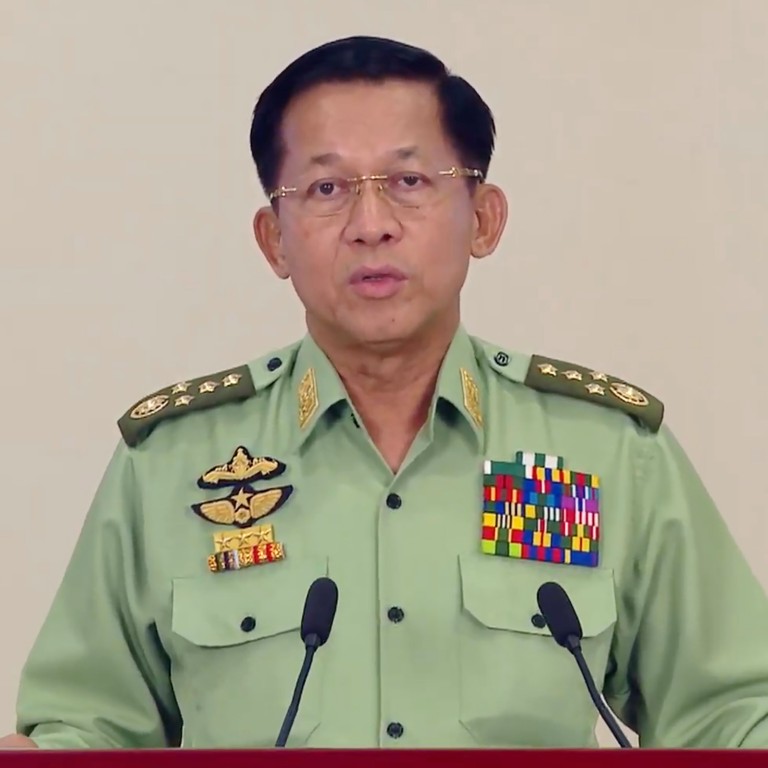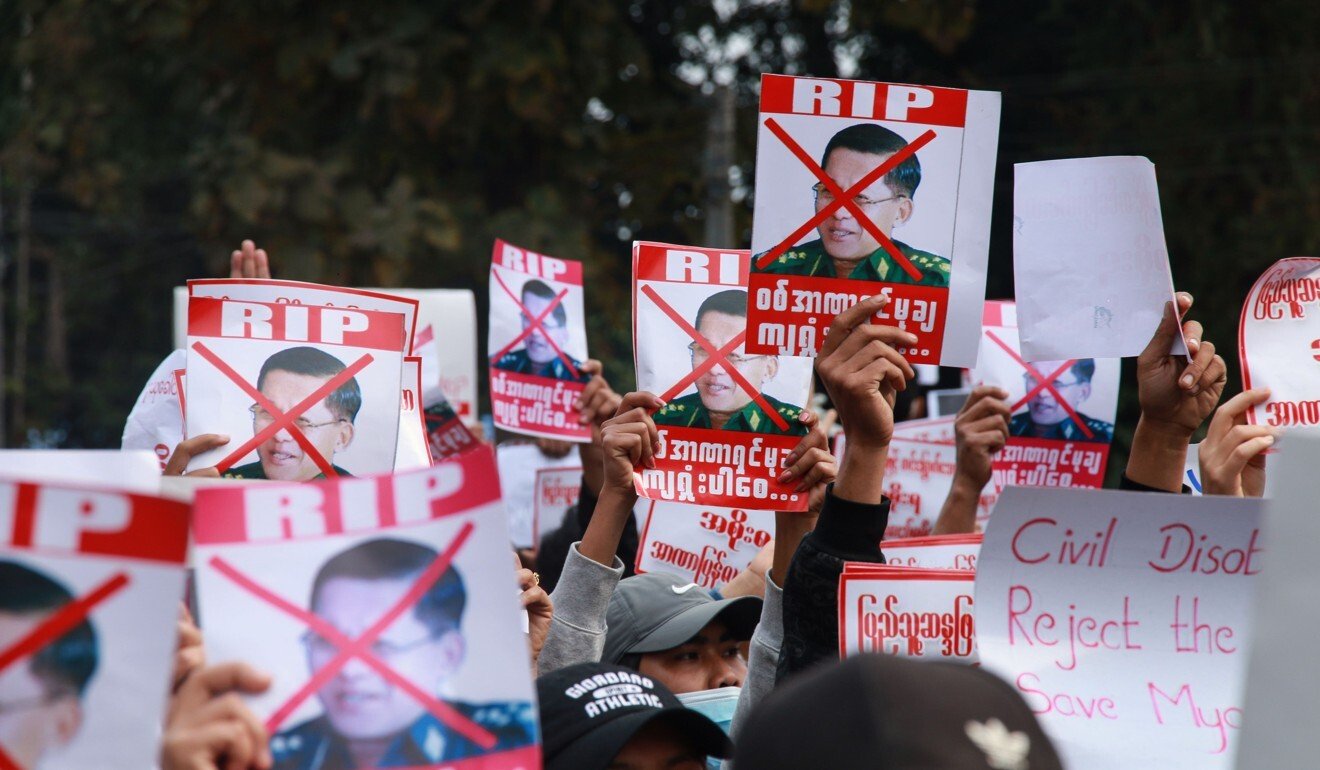
Myanmar coup: martial law declared but army chief promises junta will be ‘different’ this time
- New junta chief General Min Aung Hlaing, wearing a green military uniform, made his first televised speech since seizing power
- ‘After the tasks of the emergency period are completed, free and fair multi-party general elections will be held,’ he said
Orders covering parts of Yangon, Mandalay and other areas banned people from protesting or gathering in groups of more than five, and imposing an 8pm to 4am curfew.
“After the tasks of the emergency period are completed, free and fair multi-party general elections will be held according to the constitution,” he said. “The winning party will be transferred state duty according to democratic standards.
The general said the country welcomed foreign investment and also announced lifting of coronavirus restrictions, including reopening schools and Buddhist pagodas.
Rohingya refugees who fled to Bangladesh during a 2017 crisis will continue to be repatriated to Rakhine state, he added.
The junta has so far refrained from using deadly force against the demonstrations sweeping most of Myanmar, but with pressure building, riot police fired water cannon in an attempt to disperse thousands gathered in Naypyidaw on Monday.
Was a ‘stubborn’ Suu Kyi too much for Myanmar’s military?
“Action must be taken according to the law with effective steps against offences which disturb, prevent and destroy the state’s stability, public safety and the rule of law,” said a statement read by an announcer on the channel.

“It’s hard to see the military backing down,” said Sebastian Strangio, author of In the Dragon’s Shadow: Southeast Asia in the Chinese Century. “All this puts the two sides on a collision course.”
Even so, Myanmar’s generals might exercise caution this time around given the protests are being widely broadcast on social media despite the internet curbs, according to Hunter Marston, a Canberra-based political analyst.
“The absence of bloodshed – a hallmark of military reactions to past protests – would represent a noteworthy success,” said Marston, who added that the demonstrations may also prompt the military to negotiate a political settlement with Suu Kyi.
Additional reporting by Bloomberg

.png?itok=arIb17P0)